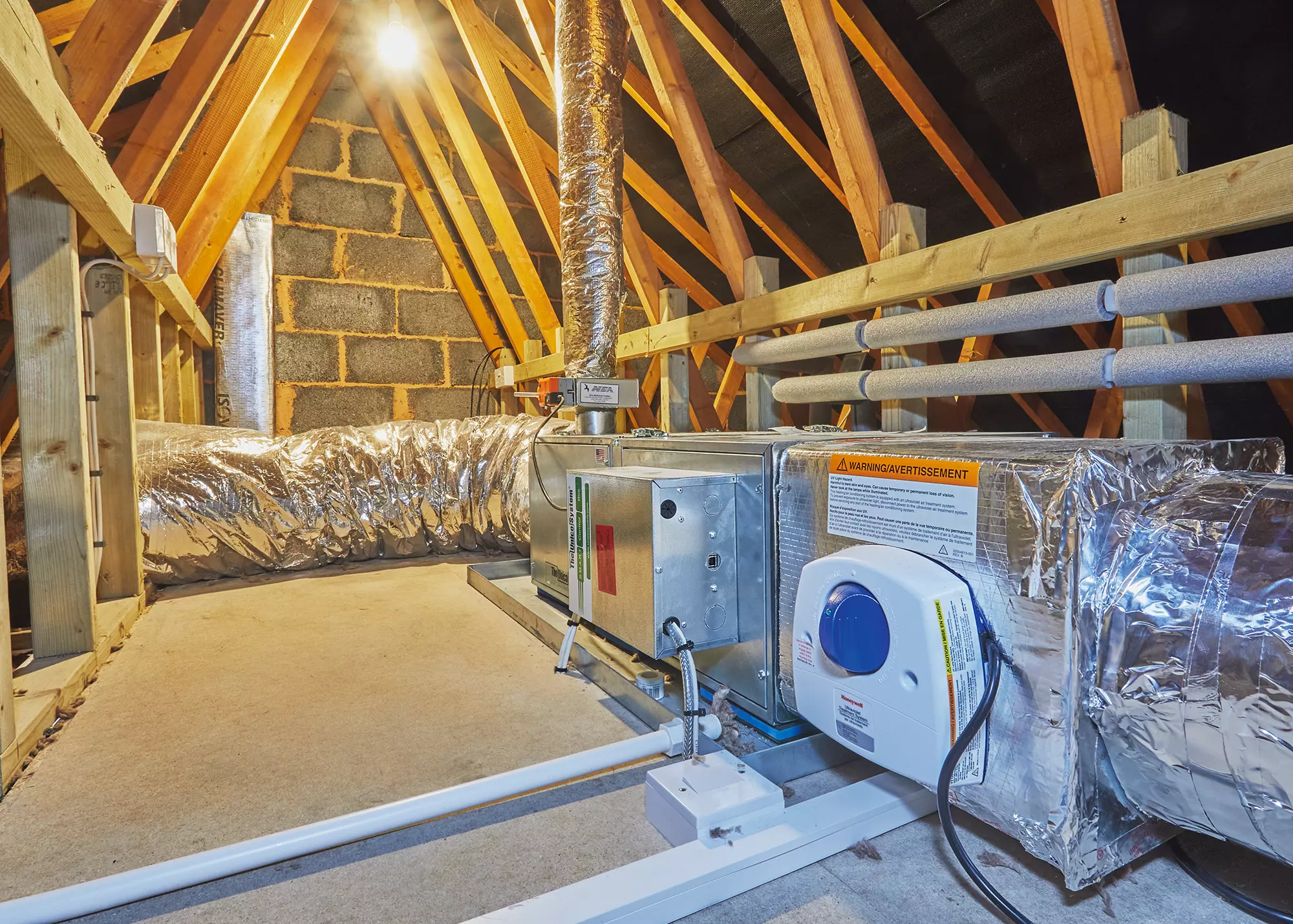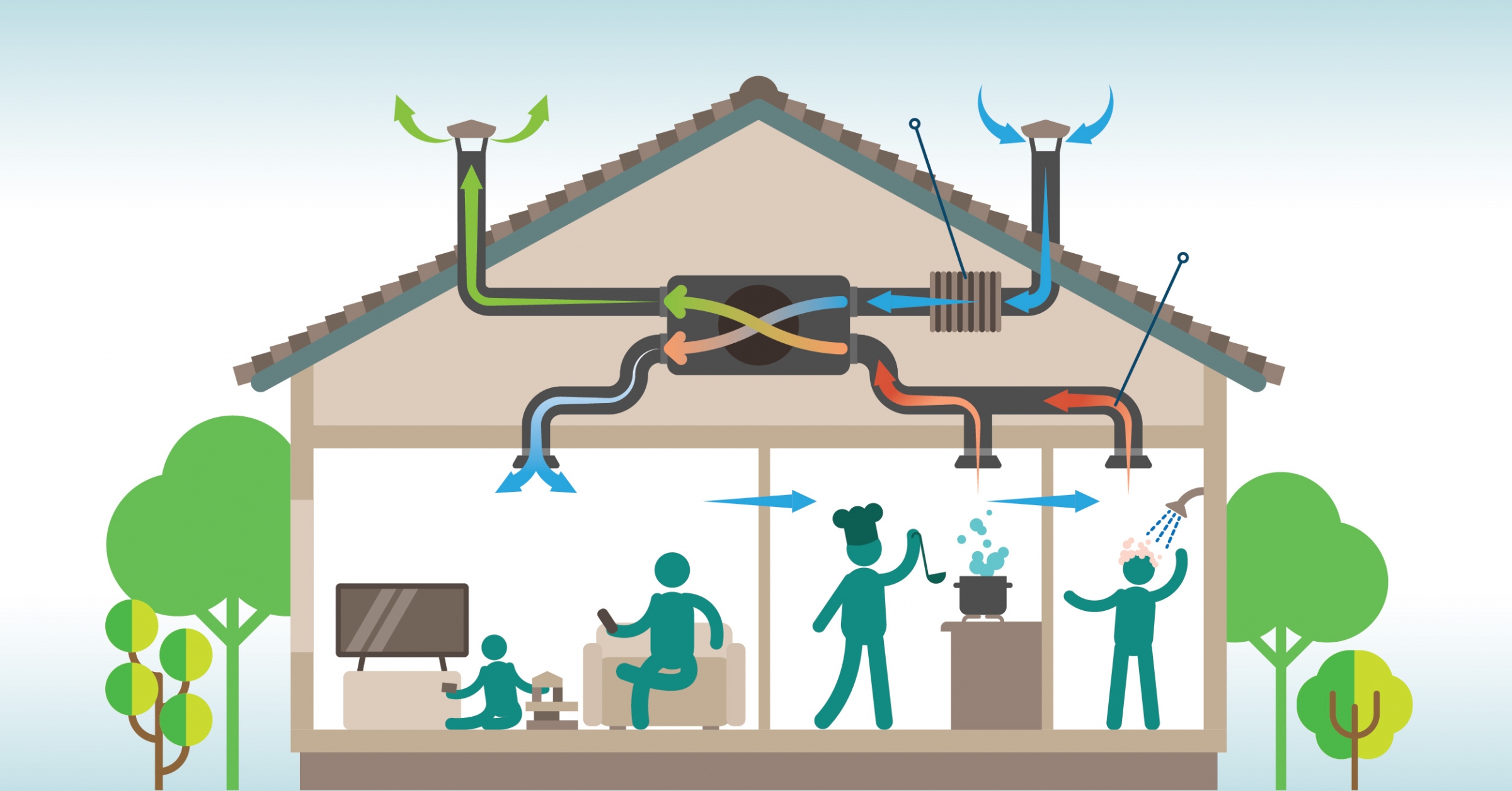Home Ventilation Melbourne: Essential Tips Every Homeowner Should Know
The Role of Home Ventilation in Preventing Mold And Mildew and Indoor Allergens
Home ventilation is a vital element in maintaining a healthy indoor setting. It controls moisture levels, which can avoid the development of mold and mildew and the build-up of irritants. Several home owners forget the importance of proper ventilation, typically resulting in hidden issues. Understanding how air flow systems feature and their effect on air quality might be the secret to a healthier living area. What steps can be taken to boost these systems properly?
Recognizing Home Air Flow Equipments
While many house owners may overlook the significance of air flow, understanding home air flow systems is necessary for keeping interior air quality and stopping mold growth - Home Ventilation Melbourne. These systems facilitate the exchange of stale interior air with fresh outdoor air, effectively lowering toxins and wetness levels. Usual types include natural ventilation, which relies upon wind and temperature level distinctions, and mechanical ventilation, which makes use of fans and air ducts to regulate airflow. In addition, well balanced ventilation systems combine both methods to maximize air high quality. Appropriately made and preserved air flow systems can help control temperature level and humidity, ensuring a comfy living setting. Homeowners need to take into consideration elements like home layout, climate, and tenancy when picking an air flow system to best fit their needs and enhance total air top quality
The Influence of Humidity on Mold Growth
Moisture plays a critical role in mold development, making it a vital variable for house owners to check. Mold and mildew flourishes in atmospheres where moisture levels exceed 60%, as these problems give the dampness required for spores to sprout and proliferate. High humidity can result from various resources, consisting of inadequate ventilation, water leaks, and cooking or bathing tasks. When moisture degrees stay raised, mold and mildew can create swiftly on organic products such as timber, drywall, and textile. Homeowners must use dehumidifiers and ensure appropriate air flow in areas prone to wetness, such as bathrooms and cellars. Keeping interior humidity in between 30% and 50% can significantly minimize the threat of mold and mildew development, adding to a much healthier living environment.
Determining Typical Indoor Allergens
Indoor environments can harbor a range of irritants that influence health and comfort. Usual interior irritants include dust mites, family pet dander, mold spores, and pollen. Allergen grow in bedding, carpetings, and upholstery, preying on natural material and adding to respiratory concerns. Animal dander, made up of tiny flakes from skin and hair, can cause allergies in delicate individuals. Mold and mildew spores, commonly present in damp locations, can affect and proliferate air top quality. Furthermore, plant pollen can infiltrate homes via open home windows or on garments. Recognizing these irritants is crucial for maintaining a healthy and balanced indoor atmosphere. Understanding of their existence enables home owners to take positive measures to minimize direct exposure and enhance overall indoor air quality.
Advantages of Correct Ventilation
Correct ventilation is crucial for maintaining a healthy indoor official site setting, as it assists to manage air quality and reduce the build-up of pollutants. Adequate air movement promotes the exchange of exterior and interior air, thus watering down harmful materials such as volatile organic compounds, irritants, and dirt. This process not only boosts comfort but additionally adds to the general wellness of residents by decreasing breathing problems (Home Ventilation Melbourne). In addition, appropriate air flow successfully manages humidity levels, lowering the possibility of mold development and cultivating a drier environment helpful to health. Furthermore, it can boost energy performance by making certain that heating & cooling systems operate better, leading to lower power costs. In general, proper ventilation is a crucial component in advertising a healthy and balanced and secure home

Tips for Improving Home Ventilation
Although lots of home owners might neglect it, boosting home ventilation is necessary for boosting air top quality and stopping mold development. One effective strategy is to frequently open home windows to promote cross-ventilation, permitting fresh air to circulate. Installing exhaust fans in shower rooms and cooking areas can efficiently get rid of moisture-laden air, decreasing moisture levels. Home owners need to likewise consider making use of air purifiers with HEPA filters to record allergens and contaminants. Regularly keeping heating and cooling systems, including transforming filters, guarantees come to a head airflow and effectiveness. Sealing leakages around doors and windows can stop outside air from entering, which aids preserve a consistent indoor atmosphere. Integrating houseplants can naturally enhance air quality while adding aesthetic worth to the home.
Often Asked Inquiries
Just how Frequently Should I Clean My Home Ventilation System?
Figuring out how commonly to clean up a home air flow system relies on different elements, consisting of usage and environmental problems. Home review Ventilation Melbourne. Normally, specialists suggest a complete cleaning every 3 to 5 years to maintain perfect air flow and effectiveness
Can Plants Aid Lower Indoor Allergens?
Study suggests that specific indoor plants may help minimize allergens by improving air high quality and boosting moisture. Their performance differs, and maintaining a clean atmosphere continues to be necessary for taking care of indoor irritants properly.
What Kinds Of Air Filters Are Best for Mold And Mildew Prevention?

Are There Certain Ventilation Requirements for Cellars?

Exactly how Do I Know if My Air Flow Is Working Efficiently?
To figure out reliable view it air flow, one need to monitor moisture levels, check air flow via vents, and observe signs of condensation or stationary air. Normal analyses can indicate whether the system sufficiently distributes and exchanges interior air.
Understanding just how air flow systems function and their impact on air top quality could be the secret to a healthier living room. While several house owners may ignore the value of air flow, comprehending home air flow systems is essential for preserving indoor air high quality and stopping mold and mildew growth. Usual kinds include all-natural air flow, which relies on wind and temperature differences, and mechanical air flow, which uses ducts and fans to regulate air flow. Appropriate ventilation is crucial for maintaining a healthy interior environment, as it helps to regulate air top quality and reduce the accumulation of contaminants. Lots of house owners may ignore it, improving home ventilation is vital for enhancing air high quality and preventing mold and mildew development.